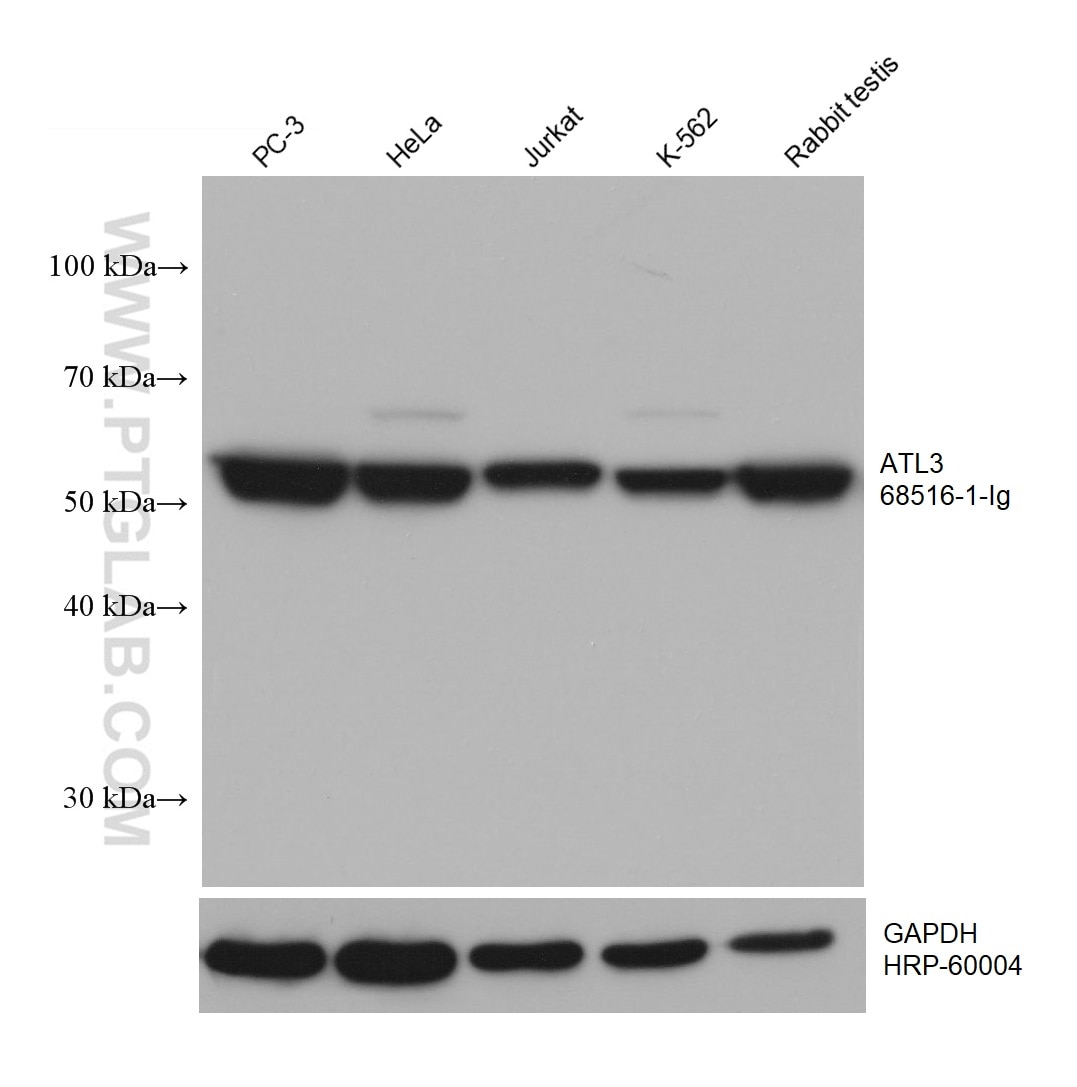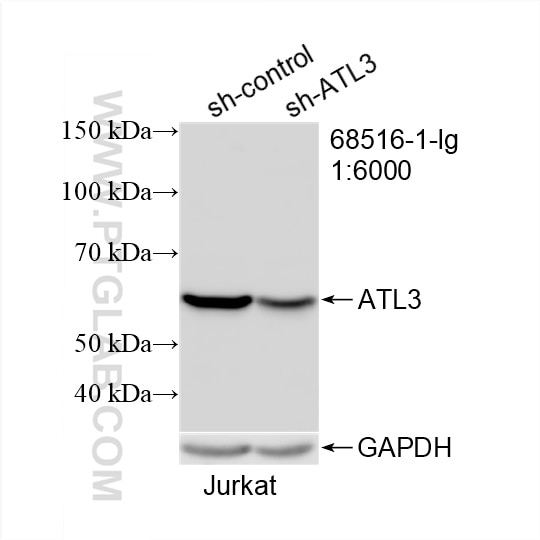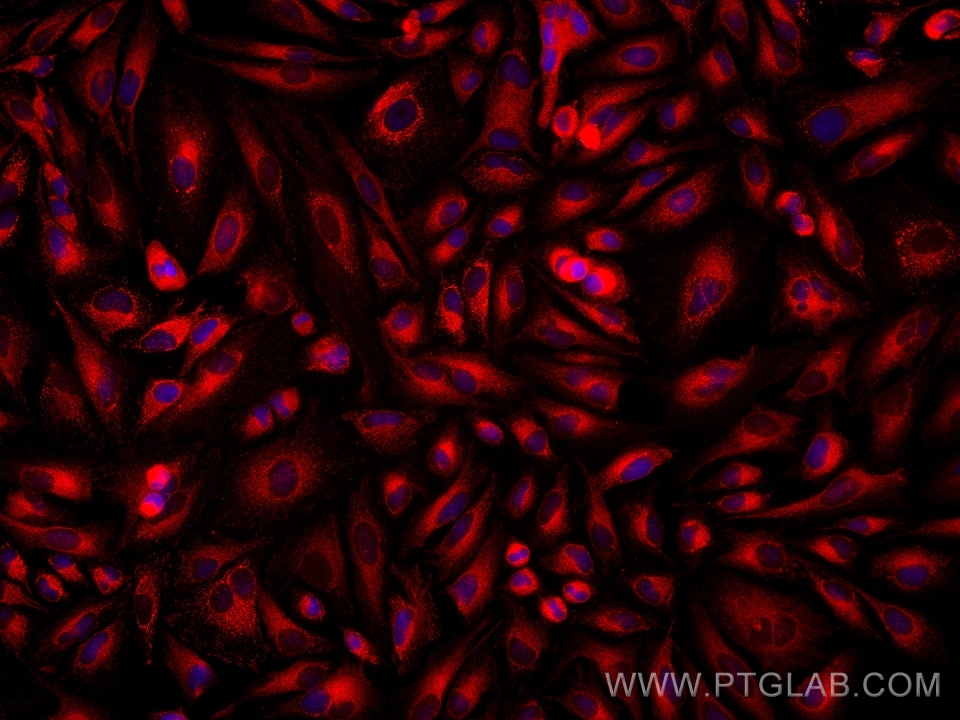Tested Applications
| Positive WB detected in | PC-3 cells, Jurkat cells, HeLa cells, K-562 cells, rabbit testis tissue, rat testis tissue, mouse testis tissue |
| Positive IF/ICC detected in | HeLa cells |
Recommended dilution
| Application | Dilution |
|---|---|
| Western Blot (WB) | WB : 1:5000-1:50000 |
| Immunofluorescence (IF)/ICC | IF/ICC : 1:500-1:2000 |
| It is recommended that this reagent should be titrated in each testing system to obtain optimal results. | |
| Sample-dependent, Check data in validation data gallery. | |
Product Information
68516-1-Ig targets ATL3 in WB, IF/ICC, ELISA applications and shows reactivity with human, mouse, rat, rabbit samples.
| Tested Reactivity | human, mouse, rat, rabbit |
| Host / Isotype | Mouse / IgG1 |
| Class | Monoclonal |
| Type | Antibody |
| Immunogen | ATL3 fusion protein Ag10248 Predict reactive species |
| Full Name | atlastin GTPase 3 |
| Calculated Molecular Weight | 541 aa, 61 kDa |
| Observed Molecular Weight | 61 kDa |
| GenBank Accession Number | BC077727 |
| Gene Symbol | ATL3 |
| Gene ID (NCBI) | 25923 |
| RRID | AB_3085225 |
| Conjugate | Unconjugated |
| Form | Liquid |
| Purification Method | Protein G purification |
| UNIPROT ID | Q6DD88 |
| Storage Buffer | PBS with 0.02% sodium azide and 50% glycerol , pH 7.3 |
| Storage Conditions | Store at -20°C. Stable for one year after shipment. Aliquoting is unnecessary for -20oC storage. 20ul sizes contain 0.1% BSA. |
Background Information
ATL3, belonging to a class of dynamin-like GTPase, was reported to mediate ER fusion. ATL3 is required for the proper formation of the network of interconnected tubules of the endoplasmic reticulum. ATL3 functions as a receptor for ER-phagy, promoting tubular ER degradation upon starvation. Mutations in this gene may be associated with hereditary sensory neuropathy type IF.
Protocols
| Product Specific Protocols | |
|---|---|
| WB protocol for ATL3 antibody 68516-1-Ig | Download protocol |
| IF protocol for ATL3 antibody 68516-1-Ig | Download protocol |
| Standard Protocols | |
|---|---|
| Click here to view our Standard Protocols |







